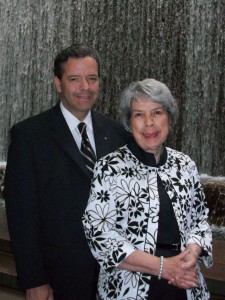Who is Charles Todd?
If you aren’t familiar with “his” many previous novels, you might be surprised to learn Charles Todd is the mother-and-son writing team of Charles and Caroline Todd.
Caroline has a BA in English Literature and History, as well as a Master’s degree in International Relations. Charles has a BA in Communications Studies, and a culinary arts degree.
No Shred of Evidence, the 18th Inspector Ian Rutledge mystery, takes place on the north coast of Cornwall, where four young women are boating on the River Camel. They see a young man on another boat that appears to be sinking. While making a valiant effort to save him, he’s struck on the head by an oar. An eyewitness, a local farmer, accuses the women of attempted murder. Ian Rutledge is called in to review the case. Since the victim is in a coma, there’s no one to refute the eyewitness’s account. Rutledge must deal with competing forces in trying to determine if the women tried to hurt the young man, and what may have motivated them. Other complications arise, and very little is what it seemed to be as the investigation reveals long buried issues and likely motivations.






 Phillip Margolin, a former criminal defense attorney who defended thirty murder cases, has written many New York Times bestsellers. He is well-known for his Amanda Jaffe and Brad Miller series, and for his many standalone novels.
Phillip Margolin, a former criminal defense attorney who defended thirty murder cases, has written many New York Times bestsellers. He is well-known for his Amanda Jaffe and Brad Miller series, and for his many standalone novels.